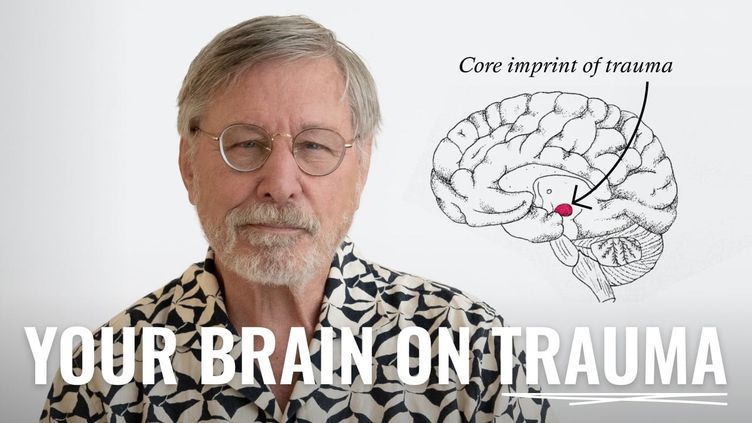Can you trust your memory? Neuroscientist André Fenton isn’t so sure.
There are three kinds of memory that all work together to shape your reality. Neuroscientist André Fenton explains. Neuroscientist André Fenton discusses the intricate relationship between memory, perception, and reality, shedding light on the complexity of human cognition. Fenton believes memories are not fixed but are continually modified by our experiences and mindsets. This, in his mind, underscores the importance of humility and empathy in acknowledging the fallibility of our memories and the need to consider different perspectives in our quest for truth. About André Fenton: André Fenton, professor of neural science at New York University, investigates the molecular, neural, behavioral, and computational aspects of memory. He studies how brains store experiences as memories, how they learn to learn, and how knowing activates relevant information without activating what is irrelevant. His investigations and understanding integrates across levels of biological organization, his research uses genetic, molecular, electrophysiological, imaging, behavioral, engineering, and theoretical methods. This computational psychiatry research is helping to elucidate and understand mental dysfunction in diverse conditions like schizophrenia, autism, and depression. André founded Bio-Signal Group Corp., which commercialized an FDA-approved portable, wireless, and easy-to-use platform for recording EEGs in novel medical applications. André implemented a CPAP-Oxygen helmet treatment for COVID-19 in Nigeria and other LMICs and founded Med2.0 to use information technology for the patient-centric coordination of behavioral health services that is desperately needed to equitably deliver care for mental health. André hosts “The Data Set” a new web series on how data and analytics are being used to solve some of humanity’s biggest problems.
6:10 Series: The Science of Perception BoxRelated Videos [03]

Your Reality Narrows After Trauma — Here’s How to Expand It with Bessel van der Kolk
What if the way you see the world is shaped by trauma you haven’t fully processed? Psychiatrist Bessel van der Kolk, author of The Body Keeps the Score, explains how trauma isn't just remembered, it is physically lived and relived through the body and brain. He describes how traditional talk therapy often fails to reach the survival centers of the brain where trauma resides. Instead, healing comes through visceral experiences that help rewire perception, build a sense of safety, and reconnect the self. Through movement, touch, psychodrama, and even psychedelics, the brain can learn to see the present as safe again. About Bessel van der Kolk: Bessel van der Kolk, M.D., is a pioneering psychiatrist and trauma researcher, best known for his work on post-traumatic stress disorder (PTSD). He authored the bestselling book The Body Keeps the Score, which explores how trauma reshapes both body and brain. As founder of the Trauma Research Foundation, he has led innovative treatments combining neuroscience, psychotherapy, and body-based approaches to healing trauma. His work has transformed trauma care worldwide.
6:54 Series: The Science of Perception Box
Neuroscientist Nicole Vignola's Guide to Reclaiming Your Brain
Your brain is wired to repeat the familiar. Change this wiring, and it will change your life. Nicole Vignola, a neuroscientist and organizational psychologist, explains how deeply rooted beliefs can limit our potential and keep us trapped in patterns of thought. These perceptions, often shaped by our upbringing and environment, aren’t necessarily our own—but they can be changed. Nicole shares how the brain’s natural biases, like negativity bias and confirmation bias, reinforce these limiting beliefs. However, with the right approach, it’s possible to reshape our mental patterns. By practicing metacognition—observing and naming our thoughts—we can start to rewire our perception and create new, empowering narratives. Our brains are capable of change at any age. By focusing on small wins and challenging automatic thoughts, we can break free from old beliefs and begin using a mindset that better serves ourselves and our futures. About Nicole Vignola: Nicole Vignola is a neuroscientist, author and corporate consultant. With a BSc in Neuroscience and an MSc in Organizational Psychology, Nicole works with companies and individuals worldwide, educating them on the science of human optimisation, health and longevity, and how to enable employees to perform better in their daily lives and in turn, bring peak performance to the workplace. Recent clients include Lloyds Bank, Makers Mark and Smeg Ltd.
6:24 Series: The Science of Perception Box
Your Brain is Biased by Default, Here’s How to Reset It with David Eagleman
Expanding your worldview starts with understanding your brain. Stanford neuroscientist David Eagleman explains. David Eagleman, a neuroscientist at Stanford and host of the Inner Cosmos podcast, explores how our brains shape the reality we experience and why we often accept our perceptions as the only truth. From a young age, we develop our understanding of the world based on limited experiences and biases, which can lead us to form narrow views about what's true. Eagleman explains that our genetics and life experiences wire our brains in unique ways, meaning that each of us sees the world a little differently. He introduces the idea of "perceptual genomics," which looks at how slight genetic differences influence our perception of reality. He also discusses how our brains naturally create in-groups and out-groups, a tendency rooted in evolution that affects how much empathy we feel for others. To overcome these biases, Eagleman suggests that we start by recognizing our own prejudices, understanding the tactics of dehumanization, and connecting with others through shared interests. This approach helps us appreciate the diverse realities others experience, ultimately contributing to a more empathetic and understanding society. About David Eagleman: David Eagleman is a neuroscientist at Stanford University and an internationally bestselling author. He is co-founder of two venture-backed companies, Neosensory and BrainCheck, and he also directs the Center for Science and Law, a national non-profit institute. He is best known for his work on sensory substitution, time perception, brain plasticity, synesthesia, and neurolaw.
7:48 Series: The Science of Perception Box